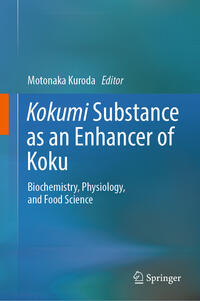
This book provides the basic concepts and latest findings on kokumi substances. It covers not only the topics related to food chemistry, but also the biochemical and physiological mechanisms of the perception of kokumi substances.  Food palatability is determined by many factors, including taste, aroma, texture, color, physiological condition, and circumstances. The attribute called “koku” is used in Japan to express delicious foods. The definition of koku attribute was previously proposed to be caused by the sensation of richness, body, lingering (continuity), and mouthfulness in terms of taste, aroma, and texture. Kokumi substance is one of the taste-related koku enhancers and is defined as a substance that enhances complexity, richness (body), and lastingness (continuity), although it has no taste itself at the dose.  The topics in this book cover physiological studies, including the receptor mechanism, taste nerve recording, and human brain responses using functional MRI. It also discusses the sensory characteristics of kokumi substances when added to foods and the effect of kokumi substances on the satiety. The intended readers are university students, researchers and technologists in food science, food chemistry, nutritional sciences, taste physiology, and neuroscience. Non-expert readers interested in food palatability and the deliciousness of foods may also find this book useful.